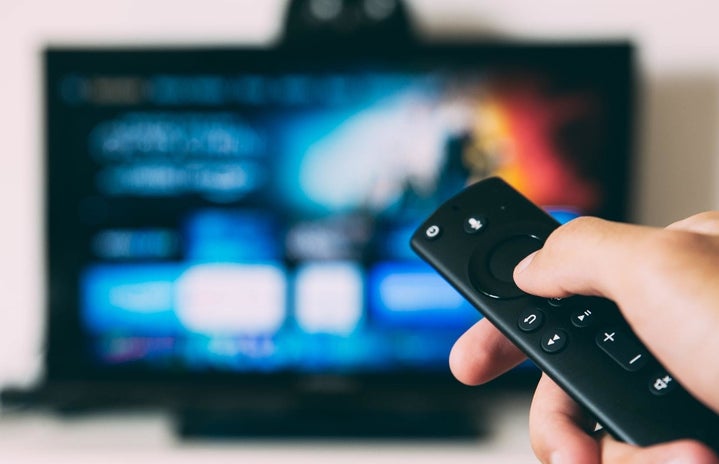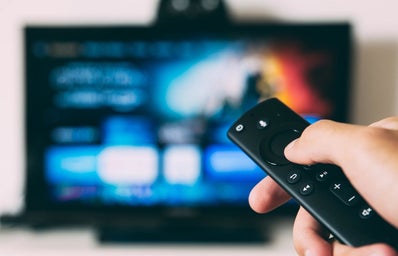The media has been abuzz for the past few weeks about “Leaving Neverland,” the groundbreaking documentary which centers on Wade Robson and James Safechuck, two men who allege that they were sexually abused as children by Michael Jackson. Between world tours, lavish gifts, and extended stays at Neverland Ranch, the boys, as well as their families, were quickly pulled into Jackson’s world of privilege and stardom with promises of their careers being catapulted by the power of his fame. In unflinching detail, the men describe their star-studded life with Michael, and how when the stage lights turned off, he sexually abused them night after night.
Since the two-part documentary was released in early March, people all over the world have been perpetually battling on social media across the board, questioning the legitimacy of the men’s stories and even theorizing that it’s all a money-making scheme in the wake of Jackson’s death. Jackson’s brothers Tito, Marlon, Jackie, and his nephew Taj, who were on tour in Australia at the time of the documentary’s release, spoke with Entertainment Tonight and were quick to deny the validity of Robson and Safechuck’s story, calling it a “tabloid character assassination.”
“I think it’s such a cheap shot to take a whack at him at this time. It’s not fair. Especially when there’s no validity to the story that they’re telling,” Tito said.
Although the Jackson clan is quick to defend their brother’s honor, many brands and radio stations are rapidly responding to the documentary by cutting ties with anything King of Pop-related. Radio stations in Canada have pulled Jackson’s music from their rotation, American cartoon show The Simpsons has pulled their Michael Jackson tribute episode off the air, and even Louis Vuitton, which had several pieces inspired by the star in their 2019 fall collection, pulled the items before they even made it down the runway (talk about bad timing).
After having my wisdom teeth removed over spring break, I was bedridden, and didn’t have much else to do but catch up on everything that had been recommended to me but I was always too busy to watch. So, as I was wrapped up in ice packs galore I sat glued to the TV, watching the entire documentary in one sitting. While watching, I had my computer on my lap, and scrolled through the hashtag #leavingneverland to see the reactionary discourse of fellow viewers. Although the documentary premiered at Sundance with rave reviews, the general public hasn’t been so kind, and many are slandering the names of Robson and Safechuck.
“Safechuck’s mum [is] saying she was happy [Michael Jackson] died….. while probably sitting in the house he bought them.” Said one Twitter user.
The biggest qualm people seem to have with Robson and Safechuck’s story? The fact that they both, multiple times, went under oath supporting Jackson’s innocence. Even Joy Robson, Wade’s mother, recalled many times when the allegations first surfaced that she asked her then-teenaged son privately whether Michael had inappropriate relations with him. His answer was always the same: No.
“Because we were so close to Michael, I wanted to believe that he was innocent. But more than anything, I believed my son.” Said Joy with teary eyes.
Robson and Safechuck address the nay-sayers who are taking issue with their change in tune by asserting that their initial support of Jackson’s innocence was just a byproduct of the severe abuse and manipulation they experienced; to that end, both boys recall being heavily coached by Jackson and threatened about the consequences they would face if they ever told the truth.
In one eerie section of the documentary, Safechuck recalls when Jackson would run “drills” with him in which they’d practice quickly putting their clothes on in case someone were to walk into their hotel room unannounced. Robson claims that Jackson many times told him that if anyone were to find out, they’d both go to jail, and that he believed this until he was a young adult.
The fact that we are so resistant to believing these men’s stories, and instead choose to place blame on anyone but Jackson himself, including Robson and Safechuck’s mothers, who facilitated the relationship with Jackson and consented to their sons spending extended time with him one-on-one, shows how oblivious we are as a society to the intricate and skillful act of grooming that abusers impose on their victims. An important part of this process is building trust in both the abused and their families.
Both Stephanie Safechuck and Joy Robson claim that Jackson became a part of their families over time. Safechuck recalls how Jackson would regularly visit their family home in Simi, California for extended periods of time while home in Los Angeles to escape the loneliness of the Neverland Estate. Whenever he was on tour, he would regularly phone the Safechucks, and would spend hours talking to Jimmy about games, movies, and other common interests.
“I came to feel like he was one of my sons by how he behaved. I loved him,” Stephanie said in reference to Jackson’s childlike behavior. It was because of this supposed innocence and profession of his longing for friends that she allowed Jimmy to share a bed with Michael while accompanying him on tour, although she initially didn’t allow it, much to his dismay.
The Robsons’ trust and affection for Jackson was heightened to another extreme compared to the Safechucks’. By his urging, Joy Robson moved her family from Brisbane, Australia to Los Angeles, as he promised it would catapult Wade’s acting career. The only person that wasn’t supportive of the move was Wade’s father, whose relationship with Joy took a toll as she and Wade grew more attached to Jackson. Joy and her two younger children ended up making the move and leaving her husband and oldest son, Shane, behind. According to her, he never got over their move. Already a sufferer of bi-polar disorder, he spiraled downward after they left, and ended up committing suicide after Shane finally left home as a young adult.
In sexual abuse cases among juveniles, 93% of victims claim to know and/or have had some sort of relationship with the perpetrator. Even if it’s impossible for an outsider to comprehend how a mother could allow their young son to share a bed with a grown man, it’s important to take into account the detailed process that abusers often take to build trust with not only their victim, but those close to them.
Even those who have watched the documentary in its entirety still struggle to come to terms with the idea that Jackson could be guilty, citing his humanitarian efforts and positive impact on pop culture as key pieces of support for his innocence. The thing those supporting Jackson’s innocence don’t seem to comprehend is the idea that a person who appears to be “good” can still do bad things –– we saw this through the Aziz Ansari scandal that happened last winter. Just as an apparent feminist can commit sexual assault, so can a man known for his philanthropy and art that has shaped our culture today. All of this causes me to ask, is it plausible that a person’s “good” actions can counteract or cover up the “bad” ones? By holding on to Jackson’s reputation as a beloved icon to cover up the things he did to those boys, that’s exactly what we’re alleging.
Ultimately, it’s your choice to decide whether or not he did it, and in turn whether or not you will continue to support his music. I won’t deny that Michael Jackson was a creative genius; however, I refuse to use this as a means of discrediting Safechuck and Robson’s story, because that’s an incredibly problematic way of looking at assault, which has left many victims ridiculed and voiceless after coming forward.
Imagine if we didn’t use someone’s talents and characteristically “good” traits as currency to commit crimes –– how many celebrities would you still be willing to root for?

